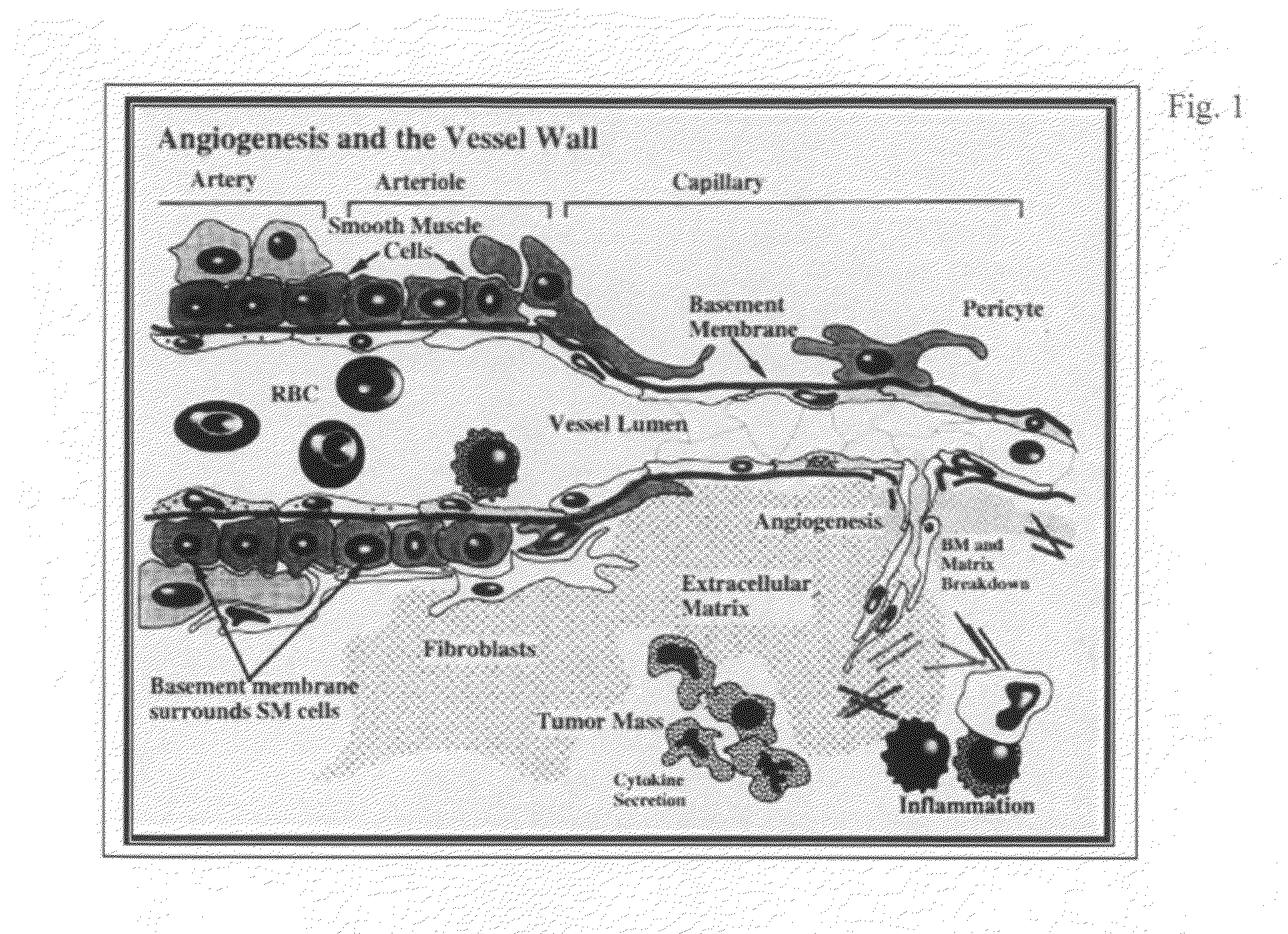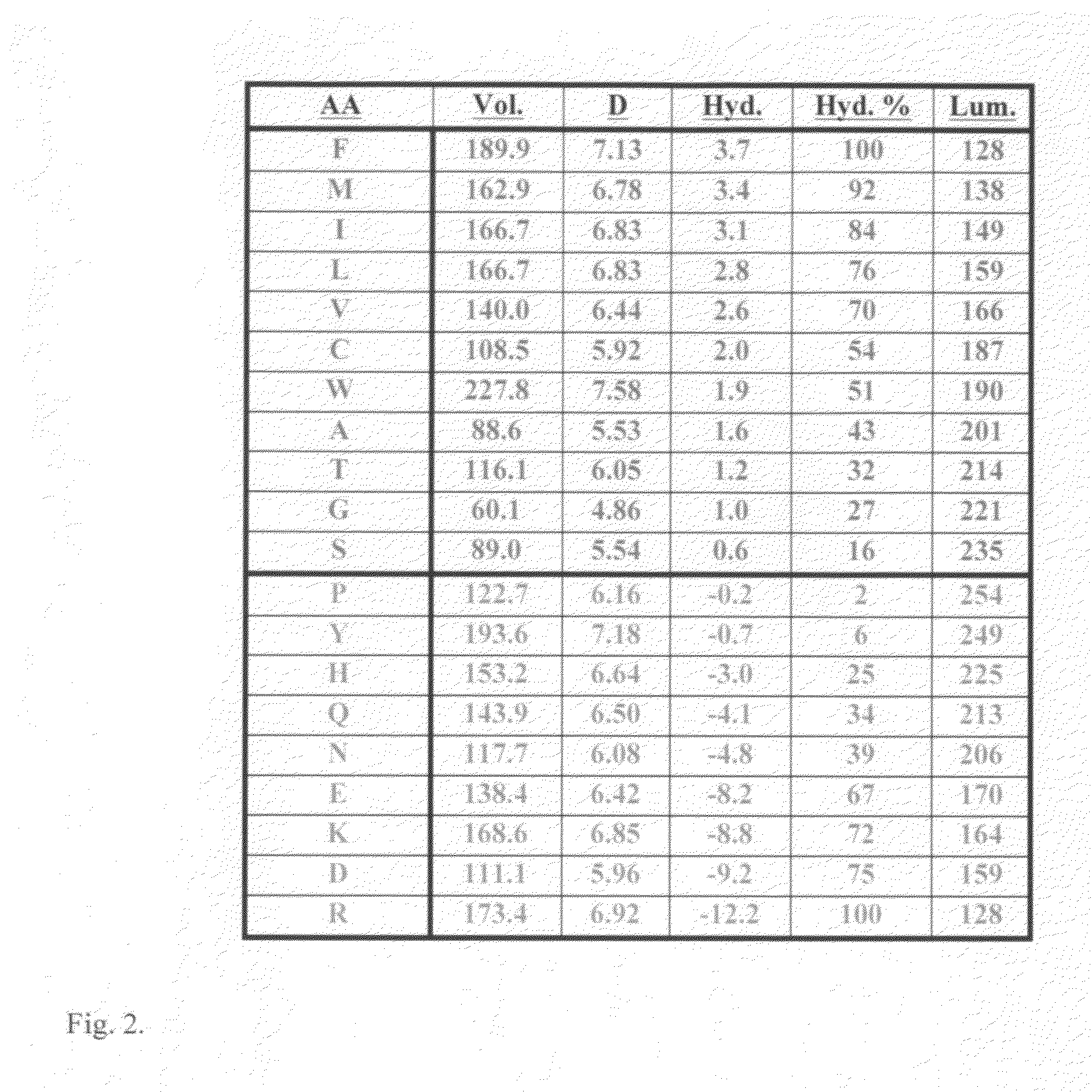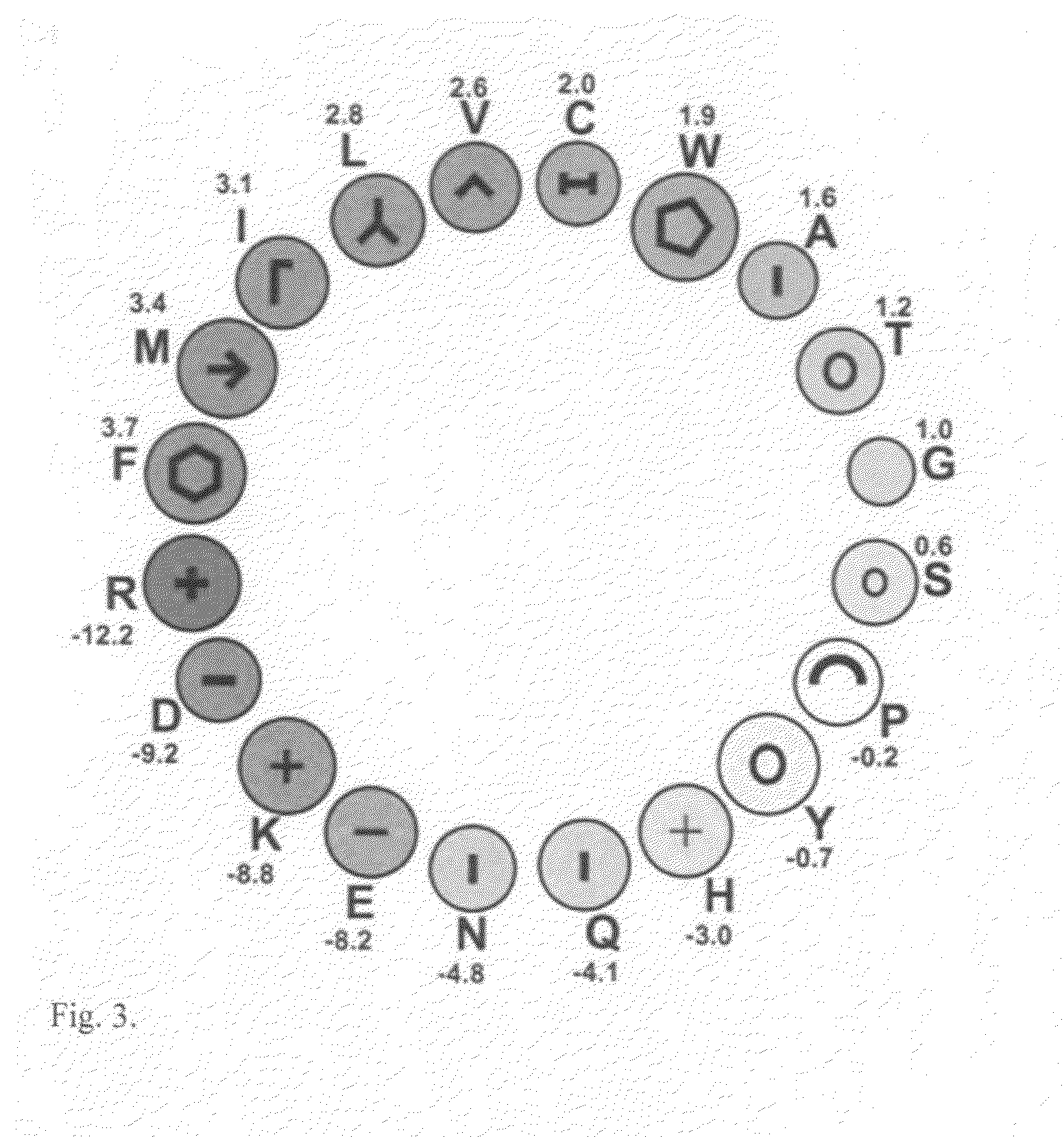Anti-angiogenic peptides and their uses
a technology of lytic peptides and anti-angiogenic peptides, which is applied in the field of synthesized lytic peptide fragments, can solve the problems of affecting the properties of tissue, disease or failure, interfering with normal eye functions, etc., and achieves the effect of enhancing or inhibiting angiogenesis and effective treatment agents
- Summary
- Abstract
- Description
- Claims
- Application Information
AI Technical Summary
Benefits of technology
Problems solved by technology
Method used
Image
Examples
example 6
Structure / Function Relationships of the Peptides and Their Anti-Angiogenesis Effect
[0063]Table 3 allows one to see similarities or differences in the presence or absence of charged amino acids and their position with respect to hydrophobic (white rectangles) and other hydrophilic amino acids (dark rectangles) in the peptides tested in the Matrigel experiment.
[0064]One can see structural similarities, within sequence motifs, when sequences are presented as in Table 3. Of course, all of the fragments of JC15 are going to be identical to different regions of the full-length JC15 molecule. However, it is also apparent that the endostatin fragment, C-1, has more than just a passing resemblance to JC15 and its fragments, as do portions of the peptides from plasminogen. In addition, the C-terminal half of PF-2, derived from platelet factor 4, shares similarly significant structural homology.
[0065]As can be seen from FIGS. 15 and 18, there is a close physico-chemical relatedness of C1 (End...
example 7
Chemokine Anatomy and the Design of Novel Domains to Delineate Specific Cellular Activities
[0072]Chronic inflammation has been implicated to be the primary causative factor in various diseases including: arthritis, multiple sclerosis, cervical spondylosis, tinnitus, systemic lupus, erythematosis, graft rejection, psoriasis, atherosclerosis, hypertension, and ischemia-reperfusion. The surprising fact is that just a handful of pro-inflammatory chemokines are responsible and according to this disclosure JC15-10N has structural analogies within the sequences of each molecule.
[0073]While there are more than 50 chemokines that have been characterized, but a clearly smaller set is involved in diseases. Table 4 provides internal sequence of a number of chemokines and Table 5 shows the chemokines involved in several diseases.
[0074]The chemical / structural similarities of the chemokines in FIG. 19 A with JC15-10N are easy to recognize. They conserve amphipathy and charge density to a high degr...
example 8
Antiangiogenic and Anti-Inflammatory Effects of JC15-10N as Tested in a Lion Infected with FIV
[0075]Nasty is a male lion in North Carolina Zoological Park. He was diagnosed to suffer Feline Immunodeficiency virus FIV. FIV attacks the immune system of cats, much like the human immunodeficiency virus (HIV) attacks the immune system of human beings. FIV infects many cell types in its host, including CD4+ and CD8+ T lymphocytes, B lymphocytes, and macrophages. FIV eventually leads to debilitation of the immune system in its feline hosts by the infection and exhaustion of T-helper (CD4+) cells.
[0076]Nasty was treated weekly with 70 mg I.M injections of JC15-10N. FIG. 20 shows changes in the absolute CD4+ Cell Counts of Nasty before and after peptide treatment. It can be seen that starting of peptide treatment stabilized the CD4+ cell counts. FIG. 21 shows changes in the absolute CD8+ cell counts of Nasty before and after peptide treatment. Starting of the treatment prevented the decrease...
PUM
| Property | Measurement | Unit |
|---|---|---|
| survival time | aaaaa | aaaaa |
| survival time | aaaaa | aaaaa |
| composition | aaaaa | aaaaa |
Abstract
Description
Claims
Application Information
 Login to View More
Login to View More - R&D
- Intellectual Property
- Life Sciences
- Materials
- Tech Scout
- Unparalleled Data Quality
- Higher Quality Content
- 60% Fewer Hallucinations
Browse by: Latest US Patents, China's latest patents, Technical Efficacy Thesaurus, Application Domain, Technology Topic, Popular Technical Reports.
© 2025 PatSnap. All rights reserved.Legal|Privacy policy|Modern Slavery Act Transparency Statement|Sitemap|About US| Contact US: help@patsnap.com



